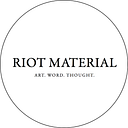Dangerous Poetics: Baal and the Resurrection of Fassbinder
The poet wanders the world, his soul a caldron of anarchic nihilism. Thus we are introduced to a young Rainer Werner Fassbinder in Volker Schlöndorff’s Baal. Based on a 1918 play by the legendary German playwright Bertolt Brecht, this 16mm work, vivid and wild, has remained largely unseen since it was first broadcast on West German television in 1970. An aghast cultural hierarchy, not least Brecht’s own aged widow, ensured the film would remain locked away until 2014, when a digitally restored version was previewed at the Berlin Film Festival. Now this restored version arrives as one of the latest additions to the Criterion Collection.
Like many great works of art, the irony of Baal’s suppression is that the film seems even more dangerous and radical today. It is an enfant terrible adaptation of Brecht, who himself began as a radically challenging voice in the Germany that emerged from World War I. Yet today, Schlöndorff’s film serves another, priceless function for its audience. It is a cinematic document capturing Rainer Werner Fassbinder early in his career, before he himself would take the world cinema scene by storm with an eclectic, passionate body of work. The words are Brecht’s, the director is Schlöndorff, yet the material is a stunning mirror image of Fassbinder himself. For he indeed was poet, artist, anarchist and provocateur. Dying at the age of 36, with over 40 films to his credit, Fassbinder’s work finds a unique, piercing resonance that grows with the passage of time.
Fassbinder’s career as a director would begin with a slew of small but stylish and gritty films full of ache and despair. His was the generation born among the ruins of World War II, later radicalized by the politics of the 1960s. If their parents had marched to the drumbeat of fascism, these new artists would seek to demolish the old order with vibrant, liberating proclamations on the screen. It would be the New German Cinema. Beginning in 1969, titles like Love is Colder Than Death, The American Soldier and God of the Plague would be early explorations of the themes that would obsess Fassbinder in his greater body of work. But in addition to directing, Fassbinder was a creature of performance as well. Himself an autodidactic film school reject, Fassbinder would always have a cheerful self-loathing stemming from his perceived ugliness. This would then fuel performances in his films that ranged from small to prominent. In Baal, Fassbinder dominates every frame.
To read the entire review of Baal, go to Riot Material magazine: https://www.riotmaterial.com/baal-fassbinder/
And please follow us on Facebook: https://www.facebook.com/riotmaterial/
